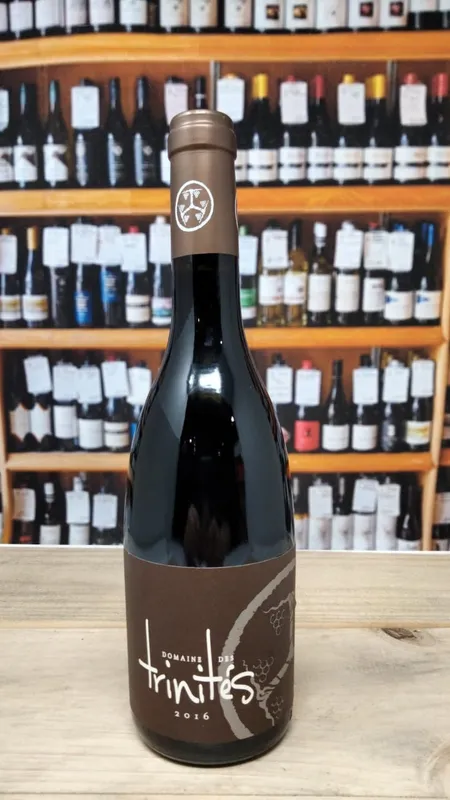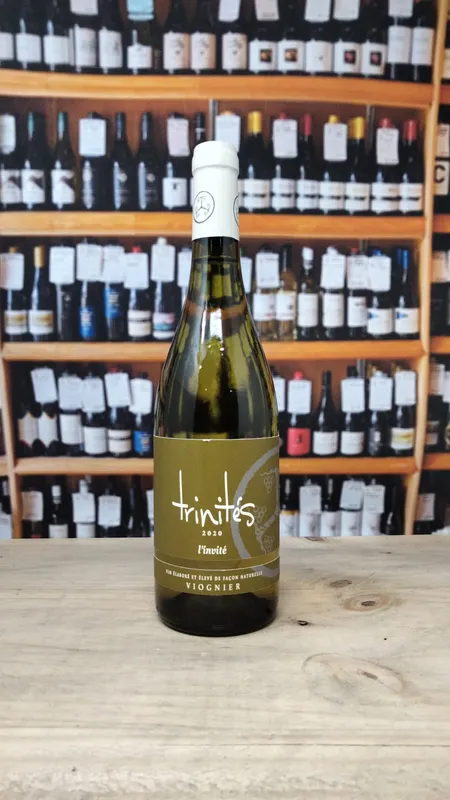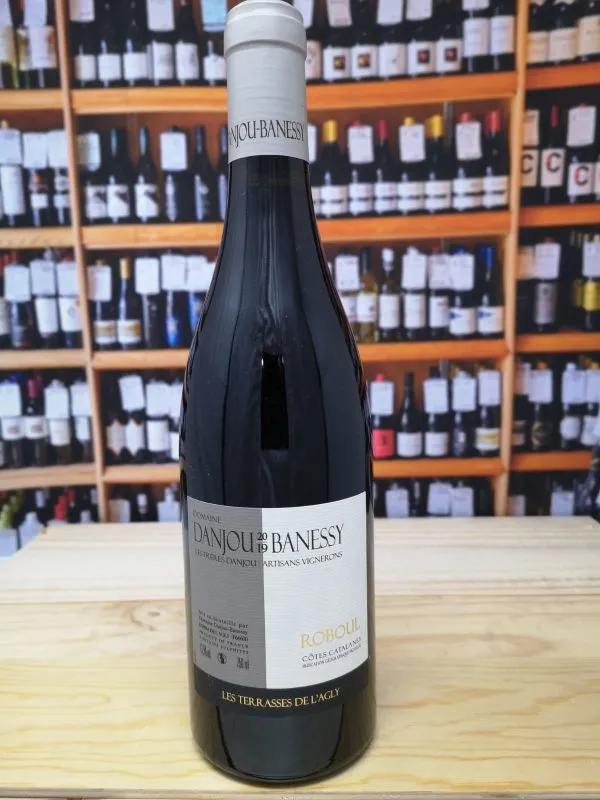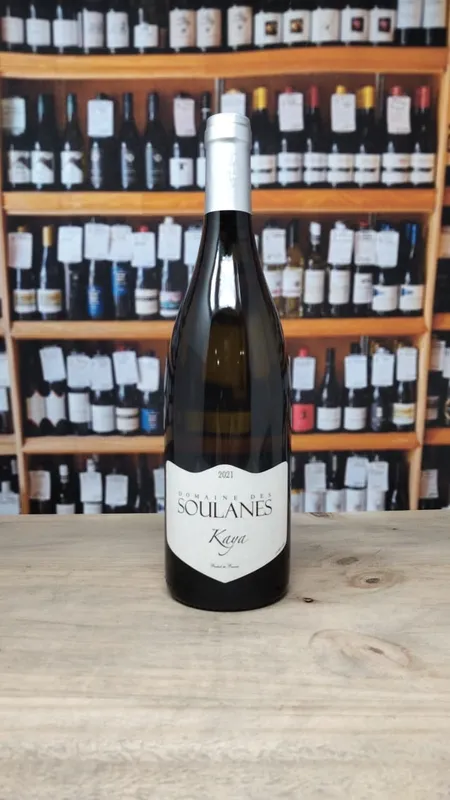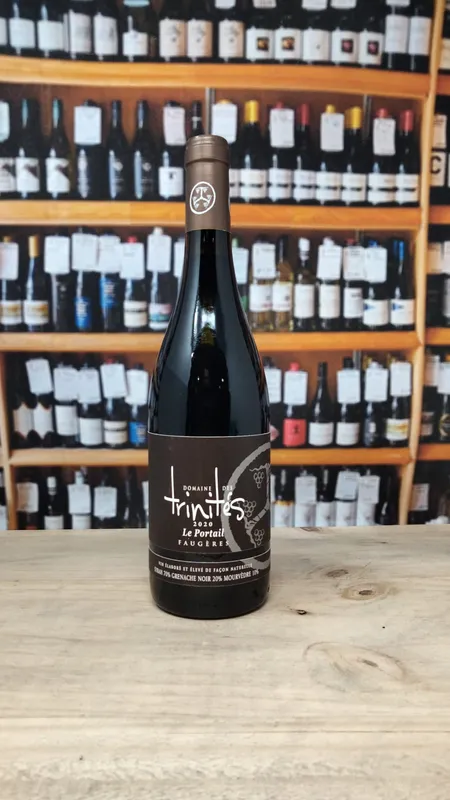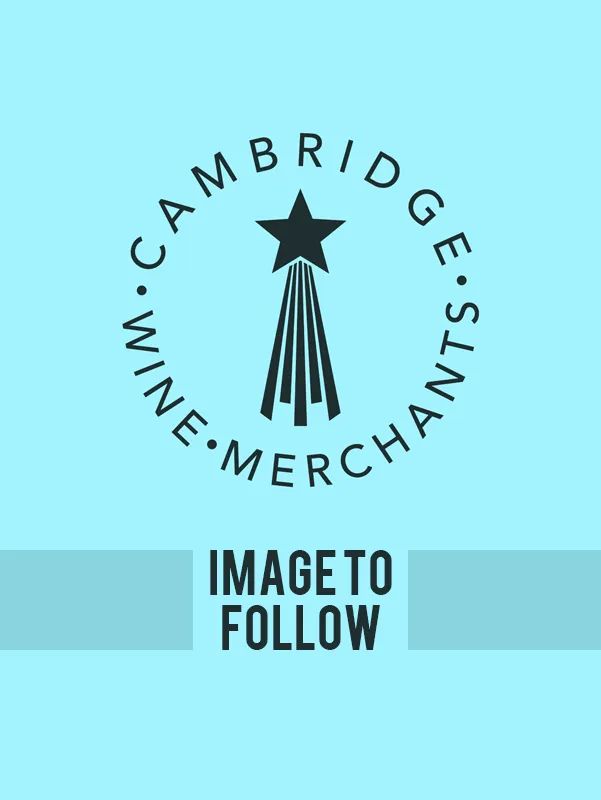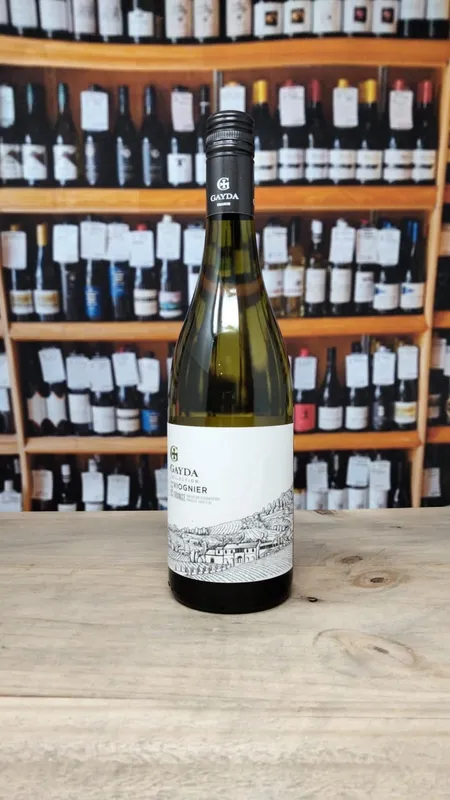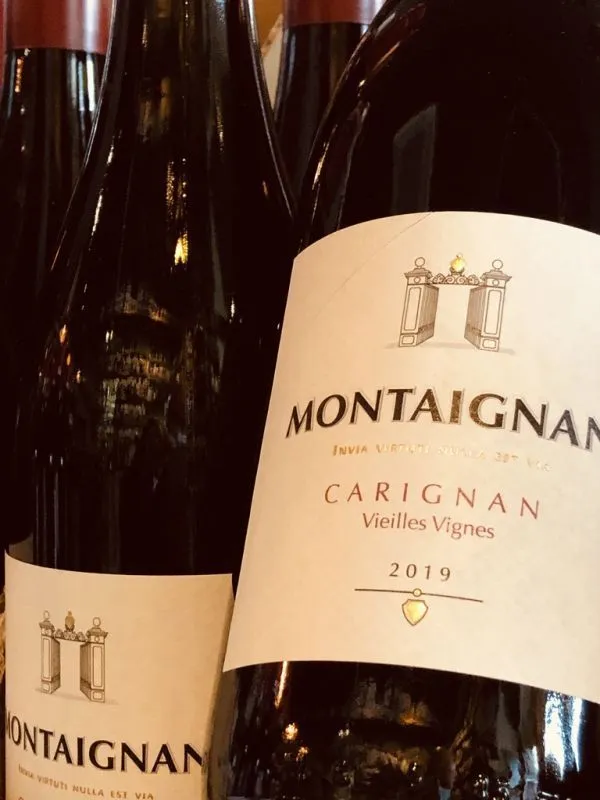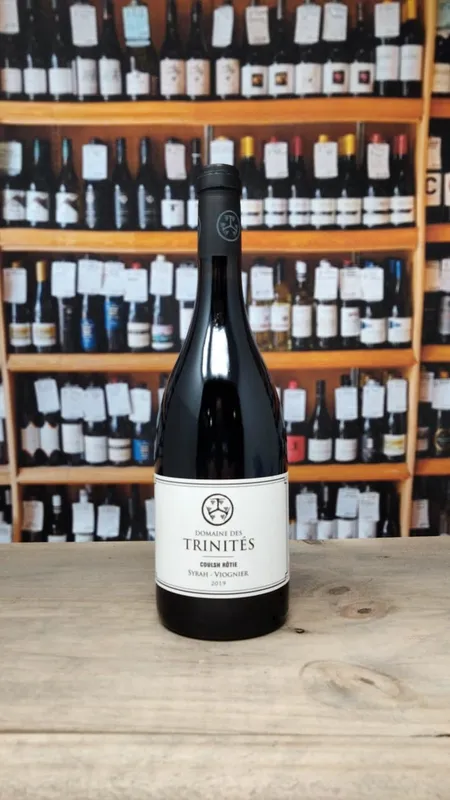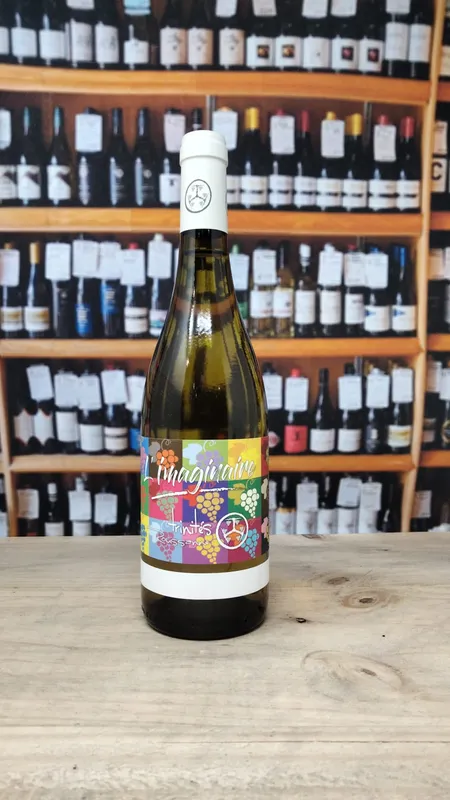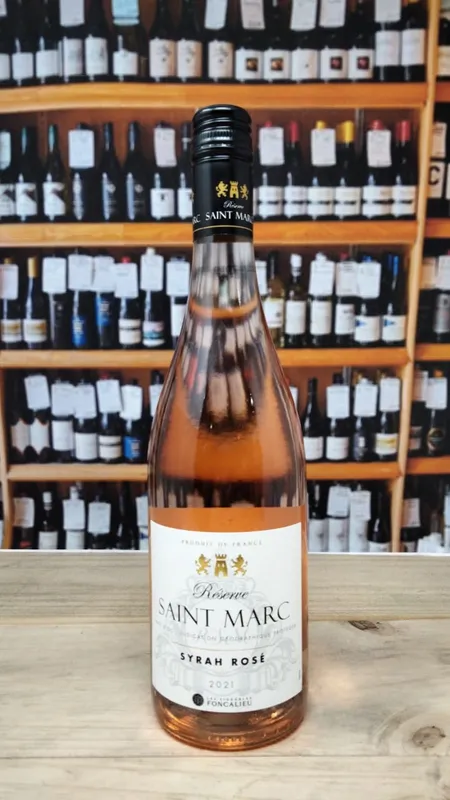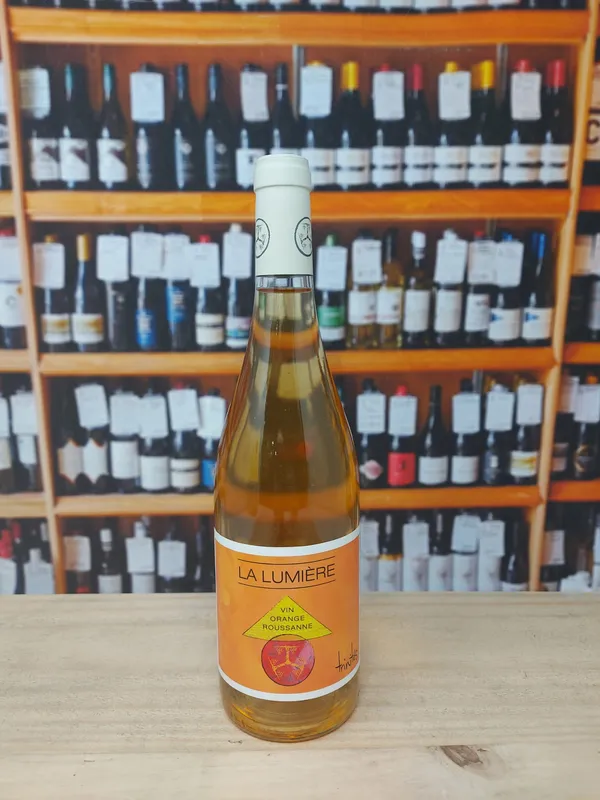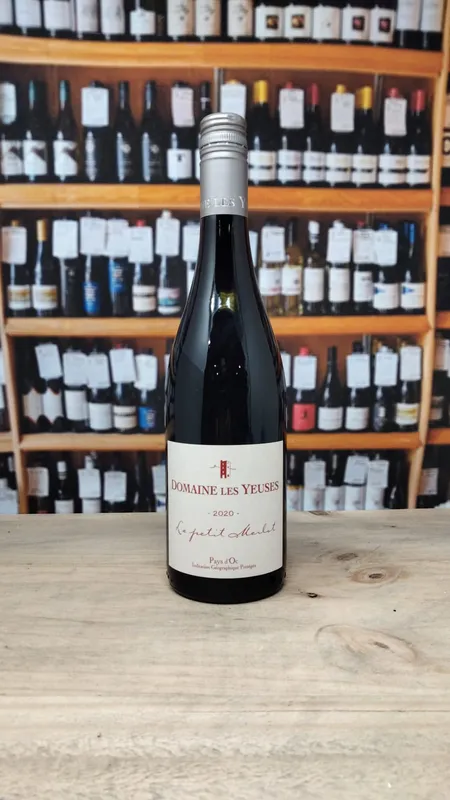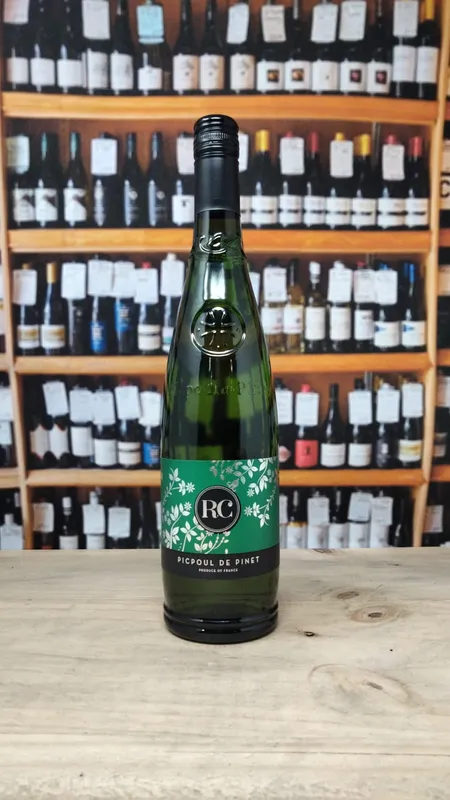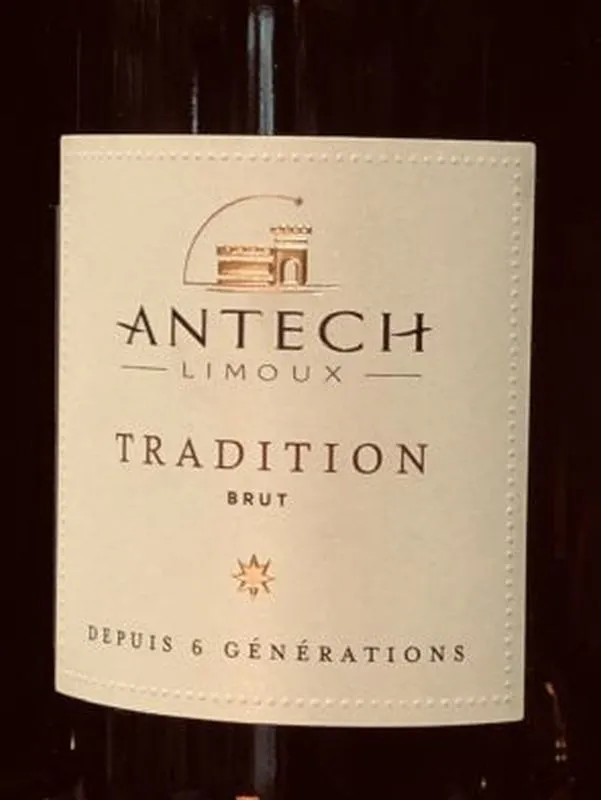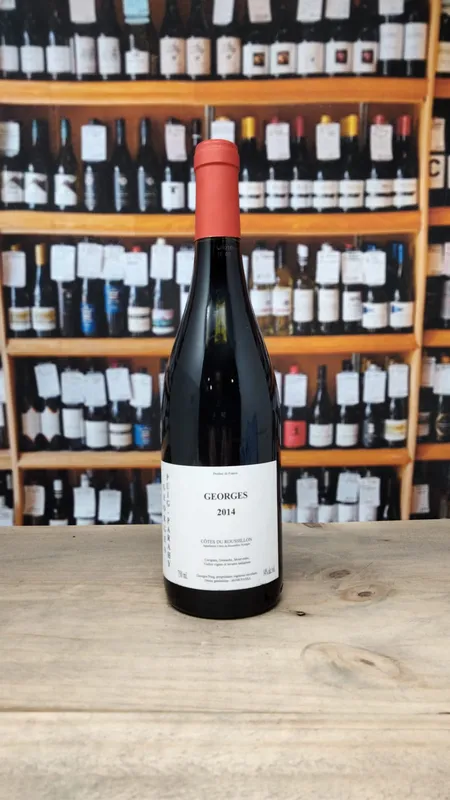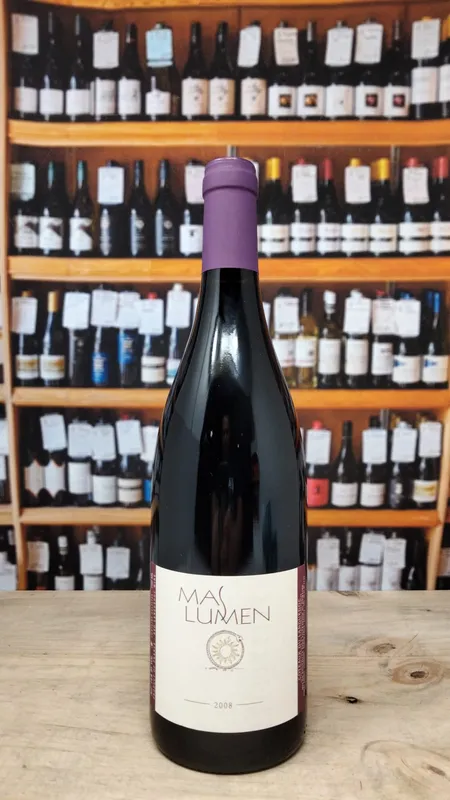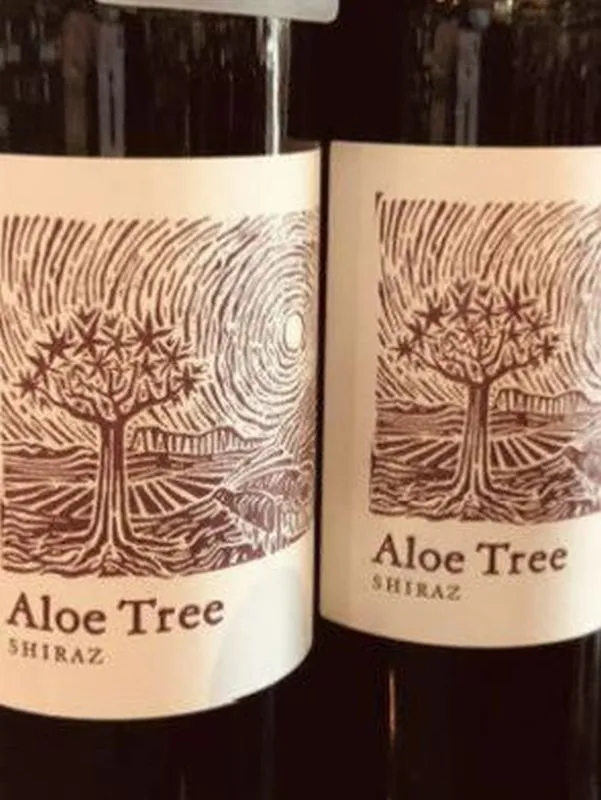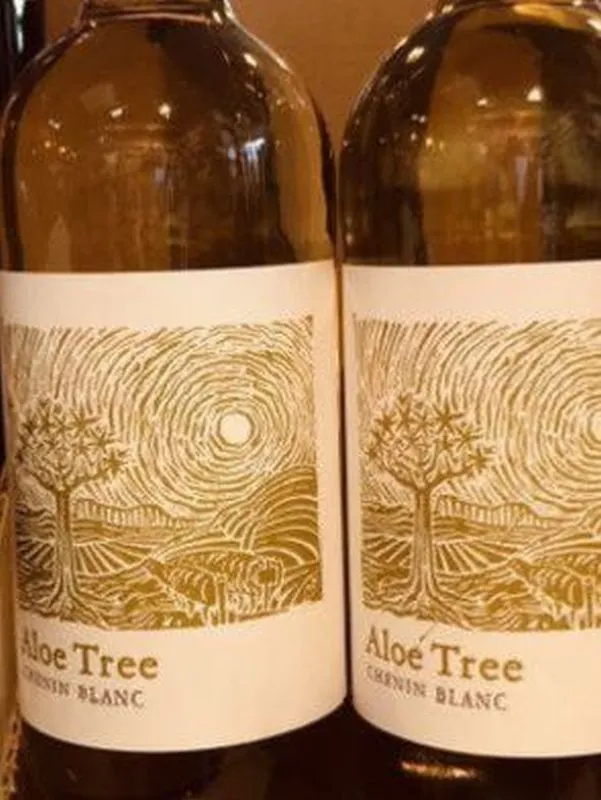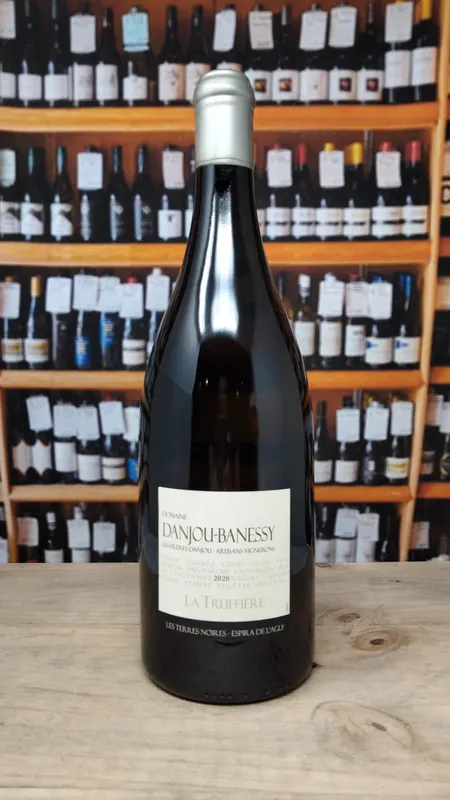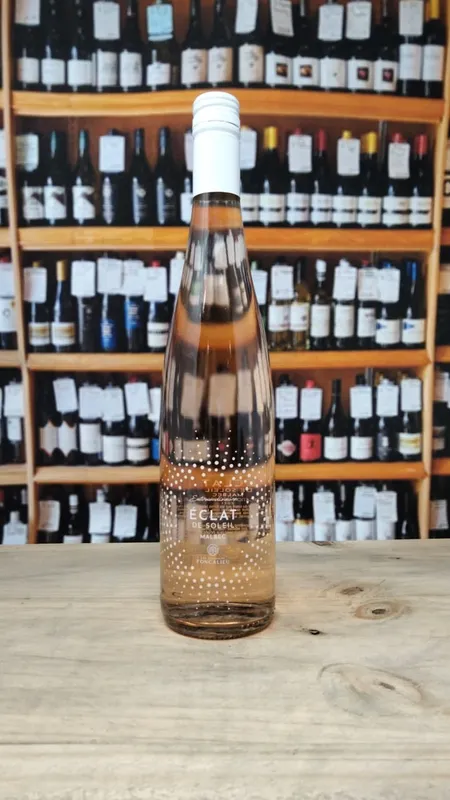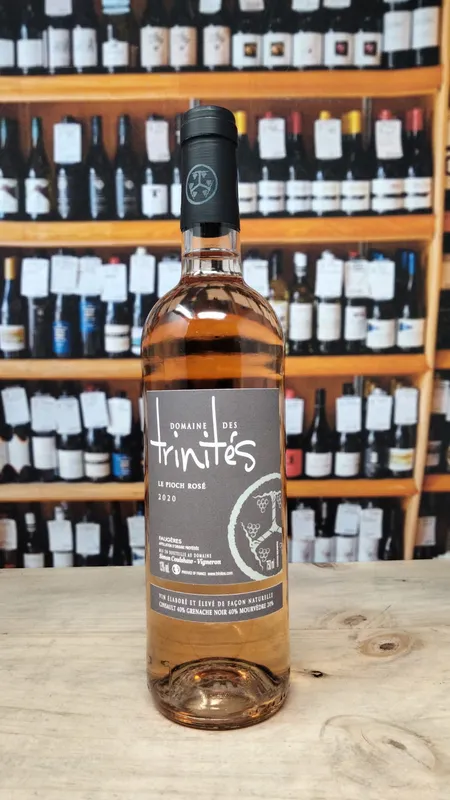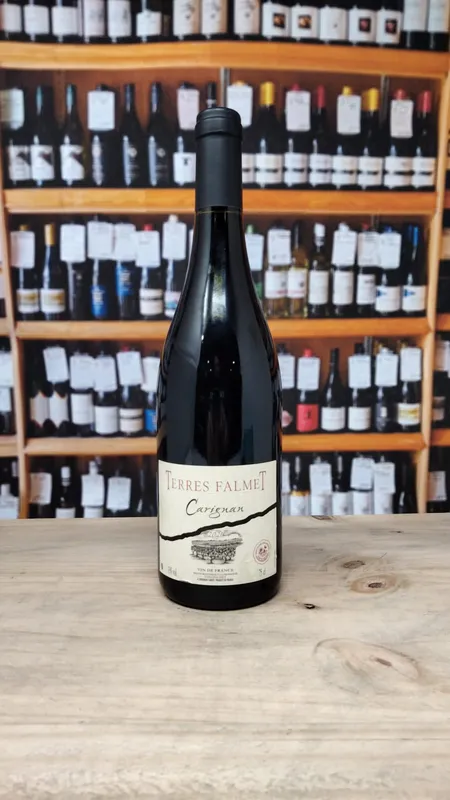There 66 products in this category
Categories
80
475
90
Domaine des Trinités
Beautifully resolved and brilliant Faugeres in a handy lunch time 50cl format. A dreamy bin-end offer. Snap it up!
80
475
90
Domaine des Trinités
After the spring frost affected 2021 (see grapes blended with Roussanne, Grenache and Syrah to produce ‘Le Duc’), Simon didn’t only lose a large percentage of fruit that year, he lost approximately 20% of the Viognier vines! Just when you thought this man's luck couldn’t get any worse! But the L’Invite 2022 displays more of the richer and classic Viognier characters than is usual from this extraordinarily high and stunning terroir of schist with large pebbles of basalt mixed in. These characters marry well with the awesome minerality this site constantly shows. An absolute stunner.
80
610
20
Danjou-Banessy
This Roboul cuvée exudes lifted fruit aromas in abundance with blackberries, blueberries, pomegranates and also gentle garrigue notes. On the palate it is velvety with curious, beautiful interest. There is a perfect balance between alcohol and acidity and it ends with a striking freshness. It's a marvelous wee wine. Full bottle 1,341 g. Single vineyard. 60% Mourvèdre (20 years old), 40% Grenache (30 years old) on pudding stone, clay, sand and limestone tuffeau. Hand-picked; whole-bunch, spontaneous fermentation; minimal cap work; very gently pressed. Fermented separately because the Mourvèdre ripens so much later than the Grenache. 12 months in old oak barrels of 600, 500 and 400 litres. "If I’d not known what this wine was, and put it to my nose, my first guess would be Pinot Noir, Tasmania. Rosehips. Nectarine skin. Hibiscus tea. Morels. Then, after tasting it, I’d change my mind. I’d wonder if this was Cinsault, one of Alex Milner’s wraith-like beauties, perhaps: the bruised rose petals, the jasmine tea, the taste of prickly pears and dust and pungent-peppery-green at the back of my throat. Then I smell garrigue - cistus, broom heather, wild thyme, the smell of the wind blowing through holm oaks and twisted pines and I am in the south of France. This is the fey child of Roussillon. This is a wine that dances in the thin places". Very Good Value. Tamlyn Currin on jancisrobinson.com 18/20 jancisrobinson.com
80
610
20
Domaine des Soulanes
Very rare, very low production. Mineral, taught. Fine and long. One of the unsung whites of the Roussillon. A blend of Grenache Gris, Grenache Blanc, Carignan Gris and Carignan Blanc. Outstanding wine. Ages gracefully for 10++ years. Beautiful vineyards that are beautifully worked.
80
475
90
Domaine des Trinités
This Syrah blend with soft black fruits and spice has been shaped by the sunbaked rocky soils of the unmistakable and very definate Faugeres terroir. A herbal, spicy bouquet is followed by youthful red cherries and supple mineral character derived from the schist rich soils. One of our greatest value wines.
80
475
90
Saint Marc
This Sauvignon Blanc reveals pleasant citrus notes and a nice freshness. It is the ideal accompaniment for salads, fish and white meat dishes.
80
475
90
Gayda
Pale lemon gold with an explosive nose. Lovely flavours of apricot, peach and acacia blossom give way to an elegance and freshness balancing perfectly the richness of the grape.
80
475
90
Montaignan
This is our own labelled house wine and one of our best sellers. Typically juicy, with lots of delicious red fruits, a lick of oak adding some vanilla, and soft tannins at the finish. Every mouthful is so enjoyable.
80
475
90
Domaine des Trinités
It's here, the 'Coulsh-Rotie". Simon "The Coulsh'" Coulshaw's fabulous take on this iconic wine. "I put this glass of wine to my nose, and had I not been firmly anchored to a chair, would have taken five steps back. The aroma swept me off my feet. Indescribable. Wild. One Thousand and One Nights distilled into a glass. Heady and exotic and riddled with rose petals and spice and coiled with riddles and one sniff of this is poetry and myth and folklore and kitchen table and campfire and someone's cigarette stubbed out at 3 am in lonely finality. Garrigue-spiced aromatics spiral through rock, plant, seed, flower with dazzling complexity. One moment it's rose petals, so delicate you could brush a baby's lips with it; the next it's hot tar, underground angry, rocks shifting deep in the cracks of the earth. This is a velvety, cocoa-dusted, amped-up-then-restrained, dark-horse beauty. Vertical, dark, slub-silk fruit with overtones of tamari and dark chocolate, crushed coffee beans and sweet forest-floor earth. Long and the kind of wine that coils around you slowly, sinuously, sensuously. Worth every penny. You'd pay three times this for a Rhône of this stature". (TC) 18/20 jancisrobinson.com When to drink 2023 - 2035 Published on 29 Nov 2021 Date tasted 29 Nov 2021
80
475
90
Domaine des Trinités
Made by Simon Coulshaw of the minimal-intervention school. Biodynamic farming although not certified. 100% Roussanne planted on their highest vineyards, a steep north-facing slope in the foothills of the Cévennes mountains. Isolated vineyards surrounded by herbaceous shrub and woodland on schist and basalt boulders. Hand-picked at 20-25 hl/ha, Five days' on skins then 48 hours of cold settling before racking. Spontaneous fermentation, no enzymes, no fining, minimal sulphur and sulphites. Carbon dioxide nap used to avoid oxidation.
80
475
90
Foncalieu
A deliciously soft and fruit Rose with lots of juicy, soft red fruit flavours with a touch of pink grapefruit. Deccent weight and freshness - very good at the price.
80
475
90
Domaine des Trinités
Soil and climate: The vines are planted on the highest vineyards of the steep north facing slopes in the beautiful foothills of the Cevennes mountains in an isolated position surrounded by nothing other than herbaceous shrub and woodland. The soil is a combination of schist and basalt boulders keeping a freshness and bright acidity in these deep rooting vines. All the grapes are handpicked from the highest point in the vineyard (350M) and provide a yield of between 15 and 20 hl/ha and undergo a rigorous triage both at the vineyard and the winery. The small 15kg crates of fruit are taken straight to the winery where they are put in to tanks and left on their skins for 21 days under a nap of Carbon Dioxide at 8°C before being gently pressed. After 48 hours of cold settling the juice is racked-off the grape solids, then allowed to ferment at low temperatures (12 - 14 degrees centigrade). A carbon dioxide nap is also used throughout the entire fermentation process to avoid excess oxidation. Wild ferment, no use of enzymes or any other fining products. A delicate white blossom, tangerine skin nose gives way to a rich, textured and multi-layered mouth feel, providing lush fruit with hints of lychee and grapefruit developing in to some green olive and almond on the finish.
80
475
90
Domaine les Yeuses
Victoria Moore writes (of the 2013 vintage) "a favourite all-rounder red. It’s merlot made precisely à point; there’s a juicy generosity, but also a refreshing leafiness: redcurrant leaves and lightly stewed damsons."
80
475
90
La Croix Gratiot
Bright yellow in colour with vibrant citrus, pear and spice notes on the nose. The palate is full but extremely well balanced, with fresh Picpoul acidity and pure fruit flavours.
80
715
30
Antech
Sixth generation Francoise Antech has taken this excellent producer to even greater heights, championing the Limoux region and Mauzac grape variety around the globe. The UK is the family's largest market , now looked after by seventh generation Baptiste. This is the first priced wine in a range of their Blanquettes and Cremants that we recommend. Blanquette de Limoux has a claim to being one of the world's oldest sparkling wines, with legend dating its creation to 1531.
80
610
10
Georges Puig - Domaine Puig Parahy
Established in 1446, Etienne Parahy is known as the first owner of the vineyards and the estate 'Puig Parahy'. In those near 600 years, the estate has passed through 19 generations to current owner and vigneron Georges Puig (the first son of each new generation is named 'Georges'). Nestled in Les Aspres region, a wonderful mixed-soil and fresh terroir of the Roussillon which is found between Mt. Canigou and the Mediterranean sea. The estate has a rich history producing outstanding rancio sweet wines that develop and live for decades, sometimes even centuries. Bottles from the 1800s are still available today. The estate was replanted in 1878 after phylloxera wiped out all of the vineyards. Many of these vines are still producing wonderful old vine fruit of outrageous quality that is carefully and naturally handled to produce a great range of dry table wines and VdNs of many styles. This is special wine. Ancient vines of Carignan, Grenache and Mourvedre and native, wild yeasts from this historic Roussillon estate have produced this pale, bright and gorgeous mid-red coloured wine - looking exactly like a current hipster favourite. The nose is alive with prickly bright fruits intermixed with beautiful secondary and tertiary aromas of old books, furniture and childhood memories of churches and other magnificent and curious things of wonder. The palate is equally as interesting and as equally sparkly bright and refreshing. But so rewarding, resolved and complex. An utter marvel from this unsung fresh terroir in the magnificent Roussillon.
80
610
10
Domaine Danjou-Banessy
Old vine Grenache grown on decomposed black schist with a limestone sub soil with some quartz, that produces something amazing. Ethereal, sublime and fesh, this achieves a level of finesse akin to fine red Burgundy. Remarkable, special, very good indeed.
80
610
10
Domaine Danjou-Banessy
Old vine Grenache grown on decomposed black schist with a limestone sub soil with some quartz, that produces something amazing. Ethereal, sublime and fresh, this achieves a level of finesse akin to fine red Burgundy. Remarkable, special, very good indeed.
80
475
90
Mas Lumen
Final assemblage: 55% Syrah, 35% Carignan & Cinsault and 15% Grenache Noir. Organically grown on schist, basalt and grés (sandstone) that yielded beautifully balanced fruit but at a very low 15 hl per ha. Manual harvest into small caskets. The Syrah and Grenache were both destemmed and vinified separately in 2yr and 5yr old 500l barrels (Saury). The Carignan was vinified on stems and in steel tank. The Cinsault was destemmed and vinified in steel tank. Natural yeast (no inoculated yeast used). Breeding took place in 2yr and 5yr old 500l barrels (Saury) for the Syrah and Grenache, and in steel tank for the Cinsault and Carignan, for a total time of 32 months with no batonnage. Bottled without fining or filtration. Bottled with a very, very low addition of sulphites (no sulphite additions at any point previously). No other additions at all. The wine has interest, complexity and depth, it is beautifully resolved - an elegant and pretty red-fruited wine with delightful freshness and length. With this quality and with the wines age, it’s a very nice offer indeed. The wine was selected (with one of the very highest scores) as one of 80 ‘Coups de Coeur’ by Guide Gault & Millau for the year 2020 Review below - "The colour appears black, intense with purple reflections. The nose presents an elegant maturity with predominantly fruity cherry and blackberry punctuated by spicy notes (pepper, cinnamon). In the mouth, the cherry is very present with other stone fruits (plum, prune). The leather and cocoa prolong a very fresh and digestible finish. The texture is dense and velvety. A complex and racy wine that evolves beautifully without losing its beautiful tension".
80
610
20
Domaine Danjou-Banessy
Natural, biodynamic and vegan. Grenache, Carignan and Mourvedre from 80 year old vines, Made without filtering or fining. Pale but gorgeous mid red colour. At first on the nose, you are like "What even is that?". Whatever it is, you know that you like it. Elegant, subtle fruit is intermixed with gentle herb, earth and savoury characters. Deep and wonderful. On the palate the wine is elegant and deep again, but not heavy in the slightest. Ruffled fruit and savoury notes with minerality and real finesse. These wines are like no other from the Roussillon. Outstanding.
80
685
90
Aloe Tree
Bursting with dark berry flavours of blackberry, dark cherry and plums, this Shiraz has soft and supple tannins and a white pepper finish. The fruit for Aloe Tree hails from the increasingly fashionable west coast of the Cape. Cool nights and sea breezes combine to extend the growing season, resulting in perfectly balanced, ripe grapes. The iconic Aloe Tree image is sure to be familiar to anyone who has travelled widely through the Cape and is an important part of the biodiversity which South Africa is famous for. The characteristic silhouette provides a backdrop to one of the most spectacular wine regions in the world where wines grow in harmony with the thousands of plant species that make up the Cape Floral Kingdom. The grapes come from selected vineyard blocks on the west coast. The extra warmth in this area helps develop the full body and ripe flavours of this variety. The vines are planted on Karoo clay soils that add body and texture to the wine. The vines ages vary from 10 to 25 years old. Once the grapes arrive at the winery, the fruit is gently pressed and only the free run juice is used. Using selected yeasts the juice then undergoes fermentation at between 18-22 degrees Celsius for 5 days. Because of the depth of flavour, it requires less oak treatment compared to other grape varieties and matures on French oak for 3 months to improve body and texture. During fermentation the wine is pumped over 3 times a day for colour extraction.
80
685
90
Aloe Tree
Aromatic guava and orange blossom jump from the glass – this Chenin Blanc is off dry with ripe apples, peaches and a hint of orange peel on the palate. The elegant crisp finish makes this a fantastic wine for all occasions. The fruit for Aloe Tree hails from the increasingly fashionable west coast of the Cape. Cool nights and sea breezes combine to extend the growing season, resulting in perfectly balanced, ripe grapes. The iconic Aloe Tree image is sure to be familiar to anyone who has travelled widely through the Cape and is an important part of the biodiversity which South Africa is famous for. The characteristic silhouette provides a backdrop to one of the most spectacular wine regions in the world where wines grow in harmony with the thousands of plant species that make up the Cape Floral Kingdom. Chenin blanc is well adapted for various soil types, but our premium grapes are grown on medium to lower potential soils. Yield levels are limited by winter pruning and by removing shoots and leaving two or three shoots per spur during early spring. Canopy management is required as it plays a major role in yield and quality to ensure an optimum microclimate within the canopy. With its vigorous growth, medium-sized trellises are required and shoot positioning are done to maximize canopy surface. Grapes are harvested at a minimum of 21.5°Brix, but we aim for 22°Brix. Once the Chenin Blanc grapes are harvested, they arrive at the winery where the fruit is gently pressed and only the free run juice is used. Using selected yeasts the juice then undergoes cold fermentation at 14 degrees Celsius for 2 weeks before lying on the lees for 3 months.
80
610
20
Domaine Danjou-Banessy
Natural, biodynamic and vegan. Grenache, Carignan and now (for the first time) Mourvedre from 80 year old vines, Made without filtering or fining. Pale but gorgeous mid red colour. At first on the nose, you are like "What even is that?". Whatever it is, you know that you like it. Elegant, subtle fruit is intermixed with gentle herb, earth and savoury characters. Deep and wonderful. On the palate the wine is elegant and deep again, but not heavy in the slightest. Ruffled fruit and savoury notes with minerality and real finesse. These wines are like no other from the Roussillon. Outstanding.
80
475
90
Foncalieu
Really tasty. Full colour, but light on it's feet. Lots of staisfaction here. This wine is soft pressed after five hours of skin contact to produce a light pink wine. Fermentation occurs under controlled temperatures in stainless-steel tanks. Five days resting on the lees are followed by two days of cold settling. The vines that produce this wine are grafted from Argentine Malbec, which of course comes originally from Cahors in France. The wine maker is Argentine, and he searched all over the Languedoc for a place that would produce the characteristically bright and intense Malbec of his home country. He found this possibility in partnership with winegrowers from the Coteaux d’Ensérune, who follow a 1,000-year-old viticultural tradition marked by an historically un-French willingness to develop varieties from other horizons. The unique soils on the Montandy plateau outside Béziers are red, chalky and acidic with traces of iron. This combined with the classic Mediterranean climate, make the area an ideal home for Malbec The nose is intense with concentrated red berry aromas mixed with hints of springtime flowers. The expressive palate is bursting with gorgeous, ripe fruit followed by a bright, tangy finish. Pair with Mediterranean cuisine like fish with Provençal sauce and seafood paella or try with grilled chicken and fish. Also delightful as an aperitif.
80
475
90
Domaine des Trinités
Possibly the last Rosé to be produced at Trinités? The wine has always been produced for the home market, for the restaurants and bars, in all the major cities. But since the market for such in the last few years has dried up/been somewhat difficult, vigneron Simon Coulshaw has decided to take a break for a while. This 2020 is unlike any previous effort, mostly explained below in Tamlyn Currin's note for jancisrobinson.com. It really is truly wonderful Rosé with real minerality, precision and class. an absolute stunner. 40% Cinsault, 40% Grenache Noir, 20% Mourvèdre. Hand-picked, organically and biodynamically farmed grapes. 100% saignée ie no pressing, just bleeding from the tanks. Winemaker Simon Coulshaw points out that the distinct difference in colour between the 2019 and 2020 (the latter being distinctly lighter in colour) is purely down to the maturity of the anthocynanins in the grapes. In 2019 he left the grapes for an hour and the colour was already dark; in 2020 it spent three or four hours and still didn't throw much colour. Bone dry (less than 0.5 g RS). "This is an outstanding rosé. If only Languedoc producers would sit up and take notice – this is what you can do with rosé. Real wine. Real depth, real texture, acidity so full and exciting and ripe that it made me want to helter skelter, go boogie on Brighton Pier, lick seashells dipped in raspberry sherbet, make cherry bombs filled with lime sorbet and eat them sitting fully clothed in the sea with salt on my tongue and fingers and toes. All of which sounds like fun fun fun, but don't be deceived. This is a serious wine, framed in spice and pink-grapefruit-peel bitterness. Very Good Value (TC)". Score 17/20 jancisrobinson.com When to drink 2021 - 2023 Published on 29 Nov 2021 Date tasted 29 Nov 2021
80
475
90
Terres Falmet
"Stellar old vine Carignan that is supple, savoury and deeply gorgeous. Yves Falmet's varietal selections from his extraordinary single bank of vines in Creissan, Saint-Chinian go from strength to strength. Make sure you check them all out". Stewart Travers, Senior Buyer

